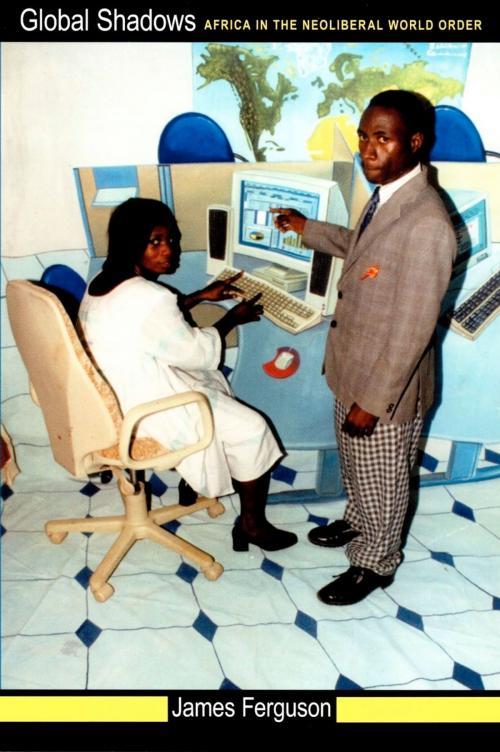Global Shadows
Africa in the Neoliberal World Order
Nonfiction, Social & Cultural Studies, Political Science, International, International Relations| Author: | James Ferguson | ISBN: | 9780822387640 |
| Publisher: | Duke University Press | Publication: | February 7, 2006 |
| Imprint: | Duke University Press Books | Language: | English |
| Author: | James Ferguson |
| ISBN: | 9780822387640 |
| Publisher: | Duke University Press |
| Publication: | February 7, 2006 |
| Imprint: | Duke University Press Books |
| Language: | English |
Both on the continent and off, “Africa” is spoken of in terms of crisis: as a place of failure and seemingly insurmountable problems, as a moral challenge to the international community. What, though, is really at stake in discussions about Africa, its problems, and its place in the world? And what should be the response of those scholars who have sought to understand not the “Africa” portrayed in broad strokes in journalistic accounts and policy papers but rather specific places and social realities within Africa?
In Global Shadows the renowned anthropologist James Ferguson moves beyond the traditional anthropological focus on local communities to explore more general questions about Africa and its place in the contemporary world. Ferguson develops his argument through a series of provocative essays which open—as he shows they must—into interrogations of globalization, modernity, worldwide inequality, and social justice. He maintains that Africans in a variety of social and geographical locations increasingly seek to make claims of membership within a global community, claims that contest the marginalization that has so far been the principal fruit of “globalization” for Africa. Ferguson contends that such claims demand new understandings of the global, centered less on transnational flows and images of unfettered connection than on the social relations that selectively constitute global society and on the rights and obligations that characterize it.
Ferguson points out that anthropologists and others who have refused the category of Africa as empirically problematic have, in their devotion to particularity, allowed themselves to remain bystanders in the broader conversations about Africa. In Global Shadows, he urges fellow scholars into the arena, encouraging them to find a way to speak beyond the academy about Africa’s position within an egregiously imbalanced world order.
Both on the continent and off, “Africa” is spoken of in terms of crisis: as a place of failure and seemingly insurmountable problems, as a moral challenge to the international community. What, though, is really at stake in discussions about Africa, its problems, and its place in the world? And what should be the response of those scholars who have sought to understand not the “Africa” portrayed in broad strokes in journalistic accounts and policy papers but rather specific places and social realities within Africa?
In Global Shadows the renowned anthropologist James Ferguson moves beyond the traditional anthropological focus on local communities to explore more general questions about Africa and its place in the contemporary world. Ferguson develops his argument through a series of provocative essays which open—as he shows they must—into interrogations of globalization, modernity, worldwide inequality, and social justice. He maintains that Africans in a variety of social and geographical locations increasingly seek to make claims of membership within a global community, claims that contest the marginalization that has so far been the principal fruit of “globalization” for Africa. Ferguson contends that such claims demand new understandings of the global, centered less on transnational flows and images of unfettered connection than on the social relations that selectively constitute global society and on the rights and obligations that characterize it.
Ferguson points out that anthropologists and others who have refused the category of Africa as empirically problematic have, in their devotion to particularity, allowed themselves to remain bystanders in the broader conversations about Africa. In Global Shadows, he urges fellow scholars into the arena, encouraging them to find a way to speak beyond the academy about Africa’s position within an egregiously imbalanced world order.















